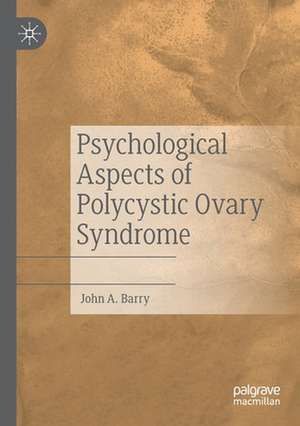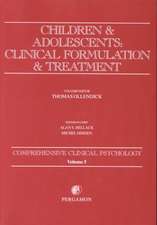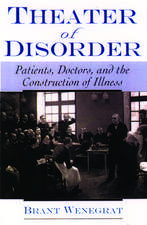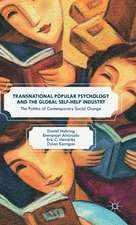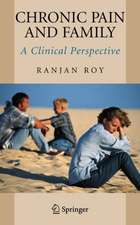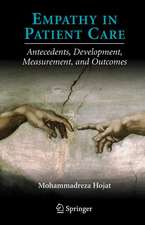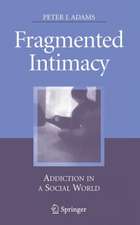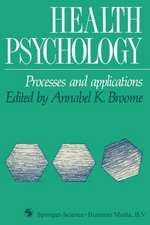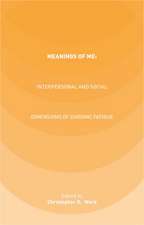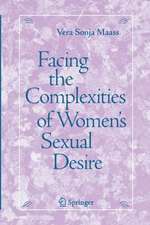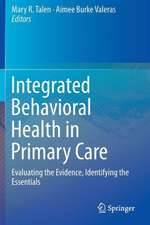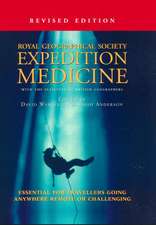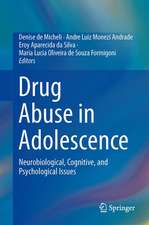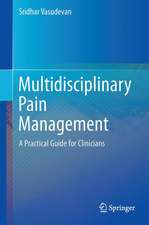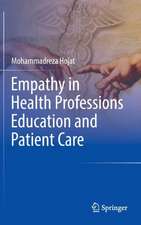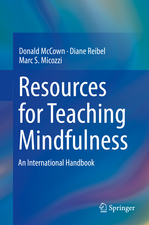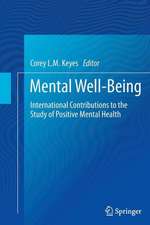Psychological Aspects of Polycystic Ovary Syndrome
Autor John A Barryen Limba Engleză Paperback – 26 noi 2020
An important feature of this book is its identification of the ways in which testosterone, a defining characteristic of PCOS, impacts psychology. In doing so it fills a lacunae in current research and offers evidence that maps out the complex ways in which biology impacts psychology in PCOS, and also how psychology can be harnessed to impact biology in a positive way. It will appeal in particular to scholars and clinicians in the fields of health psychology and women’s health.
| Toate formatele și edițiile | Preț | Express |
|---|---|---|
| Paperback (1) | 364.33 lei 6-8 săpt. | |
| Springer International Publishing – 26 noi 2020 | 364.33 lei 6-8 săpt. | |
| Hardback (1) | 374.57 lei 6-8 săpt. | |
| Springer International Publishing – 26 noi 2019 | 374.57 lei 6-8 săpt. |
Preț: 364.33 lei
Preț vechi: 383.50 lei
-5% Nou
Puncte Express: 546
Preț estimativ în valută:
69.72€ • 75.71$ • 58.57£
69.72€ • 75.71$ • 58.57£
Carte tipărită la comandă
Livrare economică 22 aprilie-06 mai
Preluare comenzi: 021 569.72.76
Specificații
ISBN-13: 9783030302924
ISBN-10: 303030292X
Pagini: 234
Ilustrații: XX, 234 p. 4 illus. in color.
Dimensiuni: 148 x 210 mm
Greutate: 0.31 kg
Ediția:1st ed. 2019
Editura: Springer International Publishing
Colecția Palgrave Macmillan
Locul publicării:Cham, Switzerland
ISBN-10: 303030292X
Pagini: 234
Ilustrații: XX, 234 p. 4 illus. in color.
Dimensiuni: 148 x 210 mm
Greutate: 0.31 kg
Ediția:1st ed. 2019
Editura: Springer International Publishing
Colecția Palgrave Macmillan
Locul publicării:Cham, Switzerland
Cuprins
Chapter 1: Introduction to biological and psychobiological aspects of PCOS.- Chapter 2: Depression in polycystic ovary syndrome.- Chapter 3: Anxiety and other psychological issues in PCOS.- Chapter 4: Impact of Testosterone on aspects of psychology.- Chapter 5: Insulin resistance, diabetes, mood and binge eating.- Chapter 6: Fertility & psychology in PCOS.- Chapter 7: Psychobiological pathways of PCOS.- Chapter 8: Treatments for improving psychological health in PCOS.- Chapter 9: Conclusion.
Notă biografică
John Barry is Honorary Lecturer in Psychology at the Department of Clinical, Educational and Health Psychology, University College London, UK. He is a chartered psychologist and an Associate Fellow of the British Psychological Society. His MSc Health Psychology dissertation and PhD thesis were on the psychological aspects of PCOS, and several of his peer-reviewed publications on this topic are seminal works in this field.
Textul de pe ultima copertă
This book provides an overview of the latest knowledge of the psychological aspects of polycystic ovary syndrome (PCOS), and paves the way for advances in this rapidly evolving field. Taking an evidence-based approach, the book elucidates the ways in which PCOS causes anxiety and depression, impacts Quality of Life (QoL), and is associated with other psychological issues. The psychological impact of key features of PCOS are explored too, with a special focus on insulin resistance / diabetes, and fertility issues. The book concludes with a chapter on practical recommendations on how best to help with anxiety and depression in PCOS.
An important feature of this book is its identification of the ways in which testosterone, a defining characteristic of PCOS, impacts psychology. In doing so it fills a lacunae in current research and offers evidence that maps out the complex ways in which biology impacts psychology in PCOS, and also how psychology can beharnessed to impact biology in a positive way. It will appeal in particular to scholars and clinicians in the fields of health psychology and women’s health.
John Barry is Honorary Lecturer in Clinical, Educational and Health Psychology and Research Co-ordinator at the Institute for Women's Health, University College London, UK. He is a chartered psychologist and an Associate Fellow of the British Psychological Society.
Caracteristici
Provides a comprehensive overview of the unique psychological aspects of PCOS Discusses the complex relationship between the PCOS and other related physiological and psychological issue Examines treatment options including evidence-based non-pharmacological available treatments Provides new insights into a relatively under-recognised and -researched condition that will advance the field
